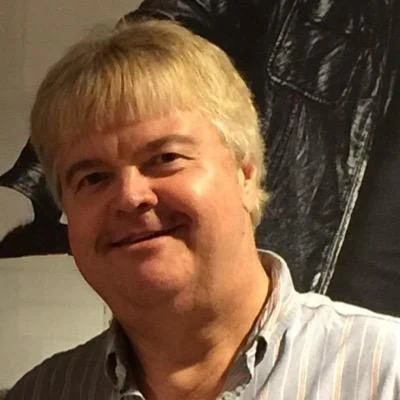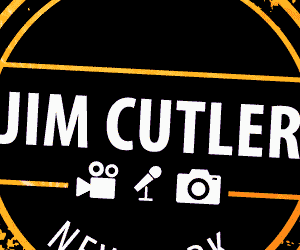Barrett Media produces over 20 stories per day on the music, news, and sports media industries. To stay updated, sign up for our newsletters, and get the latest news delivered straight to your inbox.
Ron Harrell is a Nashville-based radio consultant and talent coach. He founded Harrell Media Group, specializing in radio and audio brand consultation, fractional management, and talent coaching.
He has worked in every role on the Programming and Branding side during his career, becoming management and executive-focused in the post-Telecom Act era.
Ron has held leadership roles for media groups such as ABC/Citadel, CBS Radio, Chancellor Media, Cumulus Media, Hope Media Group, Hubbard Broadcasting, and WAY Media.
Additionally, he is a weekly columnist for Barrett Media.
He is this week’s featured consultant.
Jeff Lynn: I always like to start with an overview. How do you view the current state of radio?
Ron Harrell: Radio is searching for a new story. The book is an all-time best-seller full of audience-engaging dramas, thrillers, and advertising celebrations. It’s like Law & Order and Grey’s Anatomy. When you think there can’t be another season, the writers return with new characters, plot lines, and spin-offs.
Radio is looking for its next chapter. The readers are there. Are those readers reading more stories from other authors and sources? Yes, more than ever. However, radio is unique. It’s an in-the-moment medium easily accessible anywhere on the streaming and app platforms.
Radio needs to stop feeling sorry for itself and start believing in itself. I’ve told staff over the years to “Act like you’re going to win, but play like you’re behind.” Maybe that’s another way of saying, “Play with a chip on your shoulder.”
Why is that attitude important? Because it will resonate out of the speakers and the devices and into the sales and development effort.
JL: As a talent coach, what do you advise up-and-coming talent to do to get noticed and get on radio execs’ radar?
RH: Once, I sat on a bus next to the late great Dave Robbins and told him I didn’t get a job at B-96 Chicago because I had never sent him an aircheck. Then I told him I wouldn’t have gotten the job for many more reasons if he listened to that aircheck. (insert laugh from two radio veterans on a company event bus).
Do what everyone has done in this business. Make yourself available. Go for the job you want, not just the one you think you can get. Network, network, network. There are so many more ways to network than there used to be. But the world is noisier for decision-makers, so you will get lost. Human interaction is making a comeback because it’s unique. Pick up the phone or create a Zoom meeting. Do something.
JL: What are your tips for multi-market voice trackers to make each market as relevant and local as possible?
RH: Being local is more than talking about community events and the weather. You get a feeling when listening to a station or announcer. It resonates with the listener non-verbally as, “Yeah, she’s one of us.”
The challenge for out-of-market voice trackers is creating that feeling for multiple markets… every day. Information is more accessible through search engines and AI. Do the prep and get granular in the market. If you’re tracking a show for Nashville and the break is about a concert at Bridgestone Arena, talk about the parking challenges around Lower Broadway and name parking garages.
“I got a parking tip for tonight’s show. Try the Nashville Public Library parking garage a few blocks from Bridgestone. Only $10. But be prepared to wait 30 minutes to get out when the concert is over.”
It’s the small stuff that becomes connective tissue with your audience. If possible, invest the time and money to visit the market on a weekend. Get a car and make notes. Observe, observe, observe. Journal, journal, journal.
JL: Can radio promotion still “force listening?” If not, what is the best way to engage the audience when research says three percent of listeners care about contesting?
RH: Contesting’s greatest gift to the audience is what it does to the emotion of a radio station. We call it stationality. It creates emotion in the presentation: excitement, relaxation, concern, empathy. Whatever emotion you’re trying to create, contesting has the power to support your stationality. Promos and Imaging support the goal of the stationality. Contests allow jocks to turn a phrase or be a wordsmith with a giveaway.
Contests provide a simple blocking and tackling technique for radio: If/Then. If you listen at this time, then…. We need to improve this technique on many levels. Think of it as an On-Demand listening opportunity.
JL: Morning shows cannot just be four hours anymore. What tips can you give programmers and morning shows to carry it through the rest of the dayparts?
RH: The power of the promo. If your morning show wants to be promoted throughout the day, get a performance worth recycling in other dayparts. Entertainment is an On-Demand reality. What are you doing for me now? Give me a recycling promo that makes me laugh, cry, or be angry. If it doesn’t force me to listen tomorrow morning, it fulfilled the stationality goal of entertaining me right now.
Video production and social media give morning shows and all dayparts a chance to be visible outside the host’s on-air daypart. Create a strategy to use your non-DJ skills to connect with the audience.
JL: Assuming that it won’t change, what can programmers do to combat the heavy spot loads?
RH: Create reasons to listen around those realities. Music, companionship, benchmarks, and contests all have to be better to pull the listener through the stopset or get them to return. Commercials are content. Those advertising units double as a companion piece of your brand’s puzzle. Make stopsets sound better, and the clients will return.
JL: It seems everyone has a podcast. What can aspiring podcasters do to break through the clutter?
RH: It’s similar to what we do in radio. Find an opportunity or create an opportunity. If cooking is the hottest podcast topic, there must be an interest in cooking. Maybe the opportunity is to do it differently or more memorable than most cooking podcasts.
Some of these opportunities are created from lunchroom conversations. It’s when you hear someone day after day get the laughs or the interest from the rest of the lunchroom or the conference room. Those people and topics have a chance to get the attention of the noisy pod/vodcast audience.
The obvious opportunity for music radio talent is to do the show the Brand Manager won’t let you do on your limited radio show. You’ll find out quickly if you can hold someone’s attention for 20 minutes.
JL: Do you have any tips for a good social media strategy?
RH: The first and most ignored strategy: have a strategy. If you have a strategy, review it and update the goals. When our medium joined the social media game, we promoted the platforms to get people to follow our brand. Now, the goal is to create a community and connect with social media users.
The last time I checked, Facebook and TikTok didn’t need radio stations to promote their brand. What they want is engaging content. The benefit of radio creating content for the social channels boomerangs back to the radio brands. It has to involve human conversation to connect with the social media participants.
JL: How important is video in brand extension?
RH: Paramount. Video podcasts’ increasing popularity is why a brand needs a video strategy. Technology makes producing videos for social media and video channels easier. Here’s what hasn’t changed: the storyline. Don’t do it to say you’re doing it. Start with one idea, nurture it, and find your differences and strengths.
JL: What was the best career advice you were ever given?
RH: Every leadership opportunity provided mentors and lessons. There’s not one job I didn’t enjoy or grow from the experience. Learning and improving from an experience is critical.
We endure months of misery to avoid 24 hours of pain, is the most recent advice I learned. Great leadership involves discernment and patience. Sometimes, patience is a mask for fear. When you know in your gut, heart, and brain that you need to move on something, move. Your delay is creating misery for you and, more importantly, the team.
Connect with Harrell Media Group
Email Ron here.

Jeff Lynn serves as Editor of Barrett Media’s Music Radio coverage. Prior to joining Barrett Media, Jeff spent time programming in Milwaukee, Omaha, Cleveland, Des Moines, and Madison for multiple radio groups, including iHeartMedia, Townsquare Media, NRG Media, and Entercom (now Audacy). He also worked as a Country Format Editor for All Access until the outlet shut down in August 2023.
To get in touch with Jeff by email, reach him at Jeff@BarrettMedia.com.






